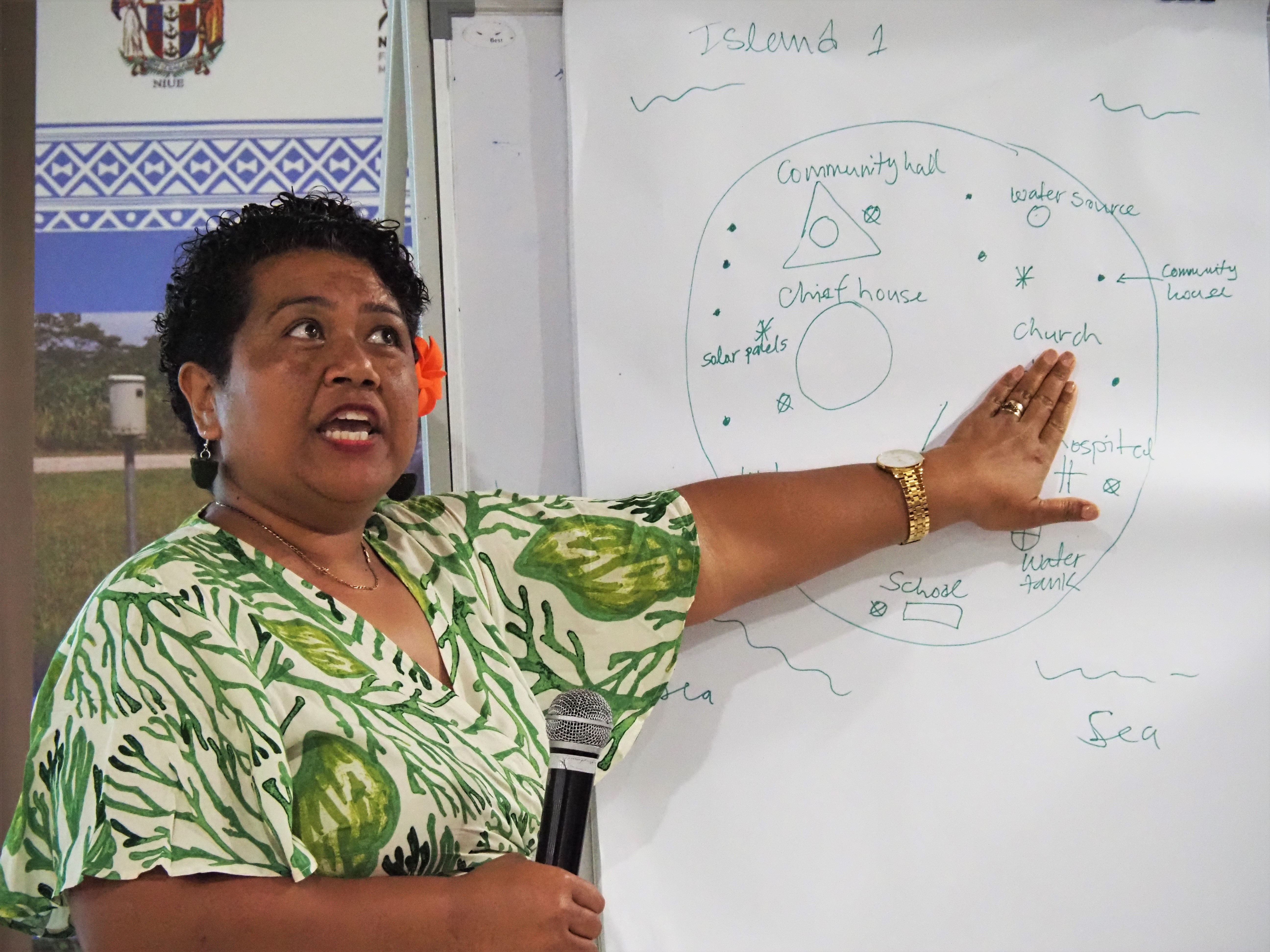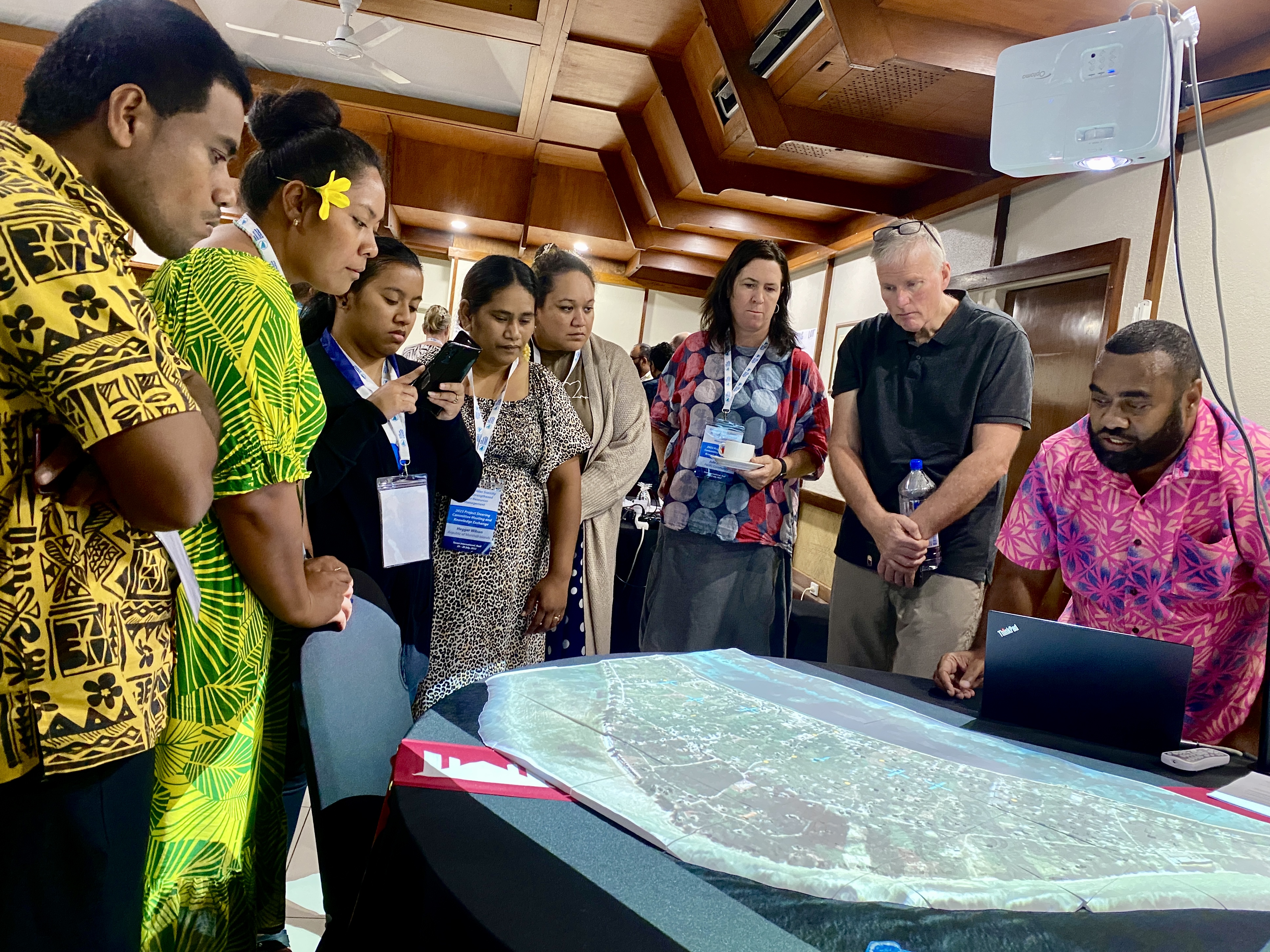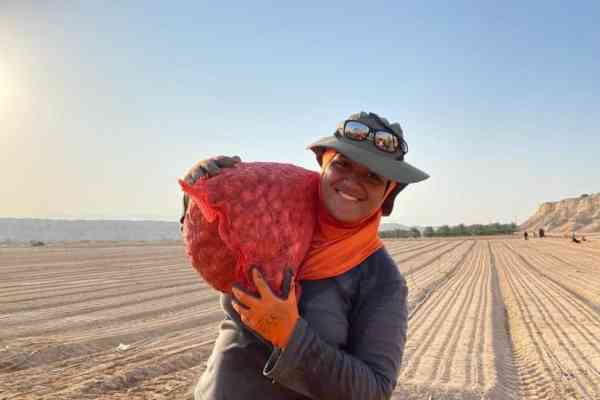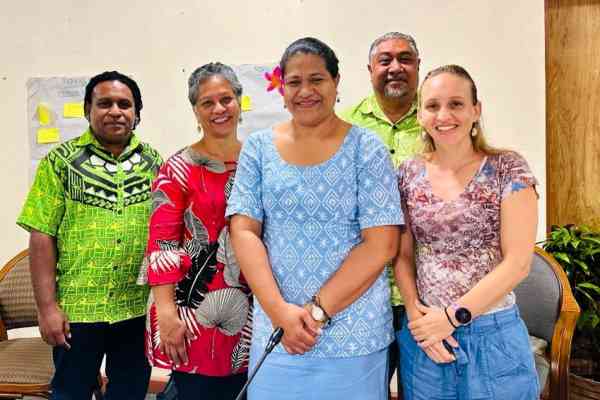Water is essential for life, but it is a scarce resource in many Pacific Island countries. Climate change adds to the undersupply, with rising sea levels threatening freshwater supplies.
In response to this challenge, the Pacific Community (SPC) has been working closely with government counterparts and communities in Cook Islands, Kiribati, the Marshall Islands, Nauru, Niue, Tokelau Tonga, and Tuvalu to implement the project, Managing Water Scarcity through Strengthened Water Resources Management (or Water Scarcity project).
The project’s second Regional Steering Committee (RSC) meeting from 25-28 July 2023 in Nadi, Fiji, brought together close to 50 representatives from the eight participating countries to discuss the project's progress and to share ideas on improving water security in the region.
Attended by senior representatives from national implementing agencies, national project managers and support staff, and technical partners, including the USA Department of the Interior, UNICEF, NIWA, ESR New Zealand, and Engineers Without Borders, the meeting included a range of activities, such as presentations on the project's progress, discussions on water security challenges, and training on water resources management.
Funded by the New Zealand Ministry of Foreign Affairs and Trade (MFAT), the Water Scarcity project supports communities in these countries through increased access to drinking water, capacity building to protect and maintain water resources and infrastructure and preparing for drought events.
Welcoming everyone to the workshop, Rhonda Robinson, SPC’s Director of the Geoscience, Energy and Maritime (GEM) Division, said, “We’re all part of an ongoing regional partnership for atoll water security that acknowledges it as one of the primary development challenges facing our blue Pacific continent, and how it affects health, security and livelihoods for many Pacific Islanders on a daily basis. This partnership acknowledges that water security is at the front line of our region’s efforts to confront the impacts of climate change.”
“As we delve into best practices, innovative local solutions, traditional knowledge, and successful examples from across the Pacific, our discussions and deliberations at this workshop will guide the development and implementation of effective strategies for water security, considering the unique challenges each island community faces.”
Jenna Priore, MFAT’s Senior Adviser Climate Change and Environment – Delivery, acknowledged the participating countries for enabling New Zealand to continue being the Pacific region’s committed and long-term partner in atoll water security, providing a programme of support alongside SPC since the predecessor project following the major drought events in 2011.

Over the four days, participants reflected on shared experiences. They enhanced their skills and knowledge in working with different technologies, as well as how to monitor and assess the effectiveness and impact of their work, and strongly engage with different communities to manage water resources.
“In Tuvalu, the project is really focusing on enhancing water catchment and improving storage facilities so that we are able to maximise the availability of water to all our communities. So, it has been providing the funds required for us to improve water systems, infrastructure ranging from gutters to roofing, as well as appropriate piping systems that are more suited to our situation, our climate and also looking at water tanks’ storage capacity, building new water reserves to enable us to capture more water and store that for future use for the people,” said Pepetua Latasi, Director of the Climate Change Department, Government of Tuvalu.
Otheniel Tangianau, Senior Manager, Pa Enua Special Projects in Cook Islands and Meeting Chair, expressed that the project is important in supporting government and communities to continue working together to understand and achieve water security.
“In the past, most of the water was harvested from the tanks, but as time went by, the Cook Islands government had to design and develop these systems, including the groundwater system. But that is only in the South; there are other islands, especially in the Northern group, whose main source of water is rainwater, and rainwater harvesting has been a critical part of their life, so tapping into this infrastructure is very important.”
Highlights from the sessions included discussions on aligned frameworks on water security and resilience, recognising water as a resilience issue in the Pacific, the need for dialogue and community engagement, integration of gender equality, disability and social inclusion (GEDSI), and group activities on governance, monitoring, evaluation, research and learning (MERL) that can better inform decision making.
The meeting ended with demonstrations by technical experts on geophysical equipment used to investigate freshwater, and modelling the impact of tidal inundation, storm surges and sea level rise in atoll communities.


